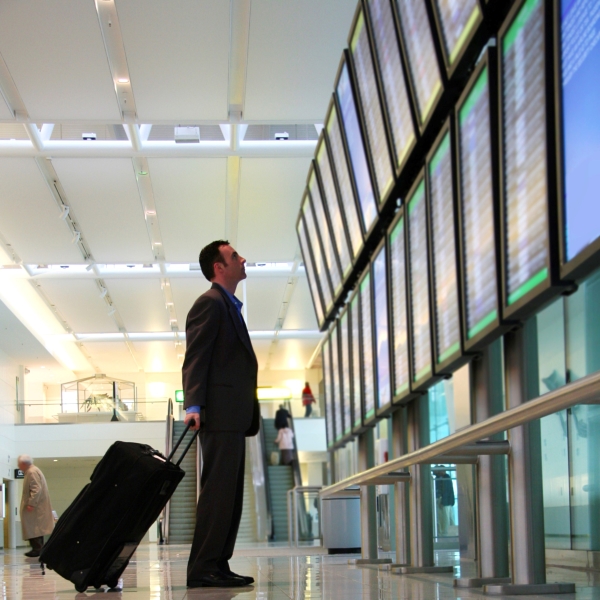Coronavirus Raises Concerns for Travelers
Coronavirus Raises Concerns for Travelers

The recently discovered coronavirus in China can cause pneumonia and can be deadly according to The Centers for Disease Control and Prevention (CDC). The CDC has confirmed travel-related cases of coronavirus in the United States and issued a level 2 alert, urging travelers to Wuhan to practice enhanced precautions. The first noted U.S. case involved a patient who recently returned from Wuhan, China, where an outbreak of pneumonia caused by the coronavirus has been ongoing since December 2019.
The CDC is ordering additional screening of passengers at major U.S. airports (JFK, LAX, SAN, CHI, ATL); these health screenings may include a temperature check and observation for symptoms such as a cough and trouble breathing. All passengers originating from Wuhan into the U.S. will be rerouted to arrive at one of the airports with these screening procedures in place.
Travelers to Toronto's Pearson International Airport are being asked a screening question about the coronavirus at electronic immigration kiosks if they have traveled to areas affected by the coronavirus in the last 14 days and they will be reminded to report flu-like symptoms to border services agents.
Officials in Wuhan announced the suspension of its transportation system, including temporary closure of its airport and railway station for departing passengers. A reopening date was not provided.
The illness is being spread person-to-person, although it’s unclear how contagious or easily the virus spreads between people. Preliminary information suggests that older adults and people with underlying health conditions may be at increased risk for severe disease from this virus. Travelers to Wuhan should avoid contact with sick people, animals and animal markets.
Travelers, in addition to checking with your airline for the latest updates, AAA has these additional tips for you:
- Travel with all necessary travel documentation, including health insurance cards.
- Consult your travel providers or a travel agent for any changes to travel plans or requirements.
- Consider purchasing travel insurance, which may include medical coverage among other options. Check with a travel agent and carefully review insurance policies before purchasing.
- Practice routine hand washing and avoid touching your face. Wash hands often with soap and water for at least 20 seconds after touching surfaces or coming in contact with passengers.
- Carry and use alcohol-based hand sanitizer (containing at least 60% alcohol) if soap and water are not available.
- Wipe down the tray table, seat belt and arm rests with alcohol-based antibacterial wipes.
- Wear a scarf to cover your face and protect yourself from airborne viruses.
- Know the nearest location of and contact information for the U.S. embassy or consulate to contact them in case of an emergency. Also enroll in the State Department’s Smart Traveler Enrollment Program (STEP).
No matter how you travel, consider adding travel insurance; it not only helps with trip cancellations, baggage or travel delays, but medical emergencies.
Learn more about AAA travel insurance by clicking below or call your local travel agent at (800) 836-2582.